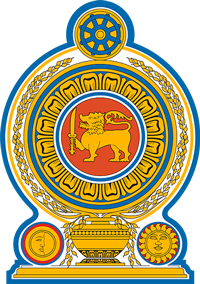Over view
Our country process a hydraulic civilization where the natural assets of land and water resources have been used wisely to serve the mankind. Irrigation has been practiced from time immemorial, being the driving force to promote agriculture and cultivation of rice, the stable diet of the Nation. The technology has reached great heights in the storage and timely supply of water to the crops for production of the food requirements and meeting the other needs of society. The irrigation system has nurtured civilization throughout the History, to overcome the disadvantages of climatic variations and provide the water when and wherever needed.
Today, Irrigation and Water Resources Management functions are major factors contributing to the economic growth, national food security and providing employment and livelihood in the rural sector. The subject of water resources development has been incorporated as a Ministry function to ensure integrated management of water resources in a holistic manner and in order to meet the water demands of all sectors and user groups, with good governance.
Conservation, development, management and protection of these resources are the key expectations in the adopted policies and principles.
The Ministry of Irrigation and Water Resources Management of Sri Lanka remains committed to manage of the Irrigation Sector and the Water Resources of the country, maintaining the equilibrium between the trends in rapid economic development and sustainable use of water resource base. It gains from the support of the implementation agencies under the Ministry, which are manned by competent technical personnel experienced and trained in their respective disciplines.
Having realized the strategic importance of water as a natural resource (as per Mahinda Chinthana – Vision for the Future), the Ministry programs and projects are geared to carry forward the millennium goals accordingly to a National Irrigation Plan, and while enhancing the productivity in existing systems, to develop the water sector as per these policies and principles by conducting feasibility studies for new projects and implementing them to serve all regions of the country, and all sectors including opening up of new frontiers under the Mahaweli Development Strategy. The Ministry organization is structured to give effect to these aims and objectives and translate national policies and priorities and guide the implementation partners by exercising supervision and progress control.
| Divisions & Branches of the Ministry | Institutions of the Ministry | |||
|
|
|||

